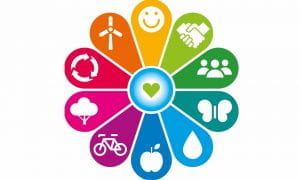Health and Happiness: According to Kelli Bush, many incarcerated individuals learn their potential through SPP programs. The SPP occupies inmates with topics other than dissatisfaction with their condition and idleness.
Equity and Local Economy: SPP programs have a record of reducing economic and human costs inside of correctional facilities. An increased number of opportunities to returning citizens also comes along with the SPP organization benefits.
Culture and Community: SPP recruits potential new students to scientific study, as well as the incarcerated individuals who desire to pursue work in their respected fields of study after release. As far as culture, this has potential to shift the stigma of incarceration in the nation (the shift has already begun).
Land and Nature: Reintroduction of species, waste sorting, composting and recycling, gardening, and many more sustainable practices are taught and conducted through SPP. Please visit other pages for a more in depth look on how the SPP brings nature and science to prisons, as it is the foundation of it’s existence!
Sustainable Water: Participants implemented clean water drinking system. http://sustainabilityinprisons.org/blog/2017/11/20/inmates-assemble-life-saving-clean-drinking-water-systems/
Local and Sustainable Food: Gardening programs and the growing of vegetables, honey, and other goods have stimulated healthy foods in certain facilities and the surrounding community.
Travel and Transport: The SPP has reduced all transportation fuel consumption in prisons by 35%.
Materials and Products: Decreased total facility energy and heating consumption by 13% between 2009 and 2014.
Zero Waste: The SPP has increased food waste diversion to composting operations by 90% and have decreased waste by pound per inmate from 2.9 in 2004 to 1.5 in 2011.
Zero Carbon Energy: Between 2009 and 2014, the SPP has reduced carbon emissions in prisons by 42%.
